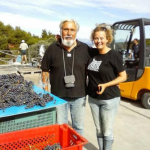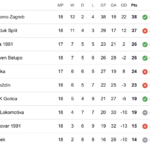The conference is an annual event organised by the American Chamber of Commerce in Croatia (AmCham) and attracts representatives of its member companies.
Doko Jelušić said that according to the EU’s Digital Economy and Society Index (DESI), last year Croatia ranked 19th, and that the entire ICT industry accounts for 4% of GDP, which shows that there is room for progress, particularly in the area of artificial intelligence (AI), cloud, ‘smart city’ solutions, digital public e-services, absorbing EU funds and other challenges.
Slovenia’s Minister Mark Boris Andrijanić, who is responsible for Slovenia’s digital transformation, said that Slovenia is now 13th on the DESI index, that it aims to be among the top 5 in the coming period, and that it plans to invest €31 million in that just this year.
“We have a very ambitious target about digitisation in the country, and in an effort to enhance digital skills among the population, we have decided to introduce €150 vouchers for young people to obtain ICT equipment and €250 for adults to learn these skills,” explained Andrijanič.
Slovenia is active in the field of AI, robotics and other segments, with the focus on digitising SMEs.
Opportunity for development and progress
The state secretary in the Central State Office for the Development of a Digital Society, Bernard Gršić, and the state secretary in the Ministry of Economy and Sustainable Development, Nataša Mikuš Žigman, underscored that Croatia is investing a lot of effort to progress on the DESI index.
About 40% of companies view digital transformation and green transition as a development opportunity, and the National Recovery and Resilience Plan envisages funds for that purpose. Now the focus is on preparing a strategy to digitally transform companies, taking account of the labour force and enhancing their skills, Mikuš Žigman said.
Gršić recalled better living conditions for citizens and the added value that digital transformation brings, such as online services for citizens, noting that 1.6 million citizens use the e-citizen service.
Battle for Europe’s digital future
The regional director of the Iron Mountain digitisation company, Andrea Antoniou, said that a sort of battle for Europe’s digital future was going on regarding investment, recalling that the EU wants to be a digital leader in the world.
Everyone in Europe and the world is investing in a faster optical infrastructure and 5G networks, in cooperation between the public and private in digitisation, digital transformation and the like. It is important to make decisions at the state level and to absorb EU funds, she added.
Completely new business model by 2030
Mladen Pejković, responsible for ICT in the Atlantic Group, underscored that many companies in Croatia are working on digitisation and that 22% of working hours could indeed be automated by 2030, when a completely new business model will exist and users will spend up to three hours a day in some sort of virtual reality.
We need to adapt to those models and the new technology, which will require strengthening cooperation with local but also global IT companies, he said.
It is important to introduce tax reliefs on labour costs to be able to keep IT experts and talent in the country. More funds from the EU need to be directed to the real sector and everyone expects a lot from ICT companies, where there is huge potential for the digitisation of society and the economy, particularly in the field of smart specialisation, said Pejković.










